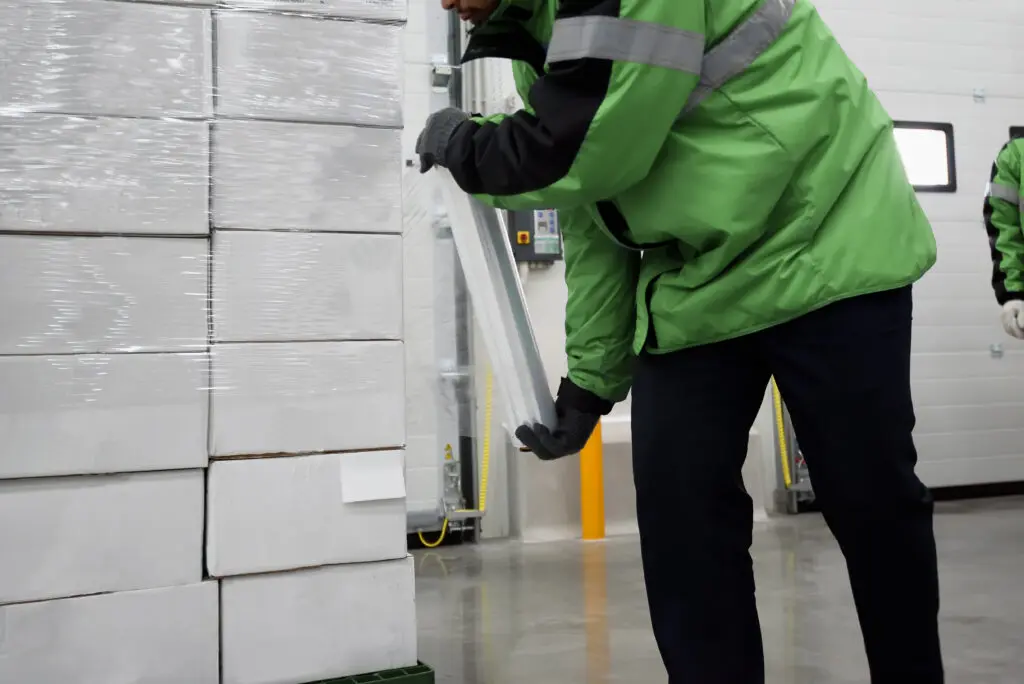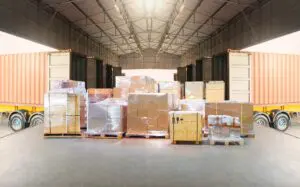Plastics play a pivotal role in the modern world, contributing significantly to various aspects of daily life, industry, and technological advancements; their versatility and durability have led to widespread use in packaging, construction, healthcare, and consumer goods. Plastics offer lightweight, cost-effective solutions that enhance product design, transportation efficiency, and resource conservation. Titan is proud to work with a variety of plastics manufacturers through the shipping and logistics of this vital resource throughout North America and around the globe.
The global demand for plastic resin has surged in tandem with the expanding manufacturing and packaging industries, creating a complex web of logistics to transport this essential material. Plastic resin, the raw form of plastic before it takes shape as various consumer products, is a critical commodity in the modern world. Titan takes the guesswork out of shipping resins and makes the process seamless.
First off, what is plastic resin? Simply put, plastic resin is the base for all plastic products, easily modified to suit a manufacturer’s needs. They are small, uniform pellets that primarily come in their natural white, but can be dyed many different colours depending on the needs of the manufacturer. It’s not uncommon to see blue, red, purple, and yellow granules. Think of resin like a soup stock; the base for which you add ingredients to make something completely new.
Shipping plastic resin involves a well-coordinated effort across multiple stages, from production facilities to end-users around the world. From over-the-road shipping to ocean freight, plastics are moved predominantly in dry containers that can be easily loaded and unloaded. With the nature of modern just-in-time shipping, Titan is a vital link in the plastic resin supply chain, providing flexibility and accessibility to a variety of locations in Canada and the United States.
Because of the value of plastic resins in our society, challenges in shipping it can arise, and that’s where logistics comes into play. From booking appointments to managing spillage, we minimize the impact of these delays for both the shipper and receiver by handling your load every step of the way. We ensure all carriers understand the critical importance of safety when it comes to shipping plastics, as even a small spill can cause environmental impacts that will affect the area for years to come.
Another challenge involves the secure and efficient loading and unloading of resin pellets. The proper handling of resin is critical to avoid contamination, degradation, or spillage during the transportation process. Given the bulk nature of resin shipments, optimizing loading and unloading procedures is essential to ensure the integrity of the product and minimize any potential negative environmental impact. This is why Titan has a leg up with the shipping of plastics: we have years of experience in managing even the trickiest plastics move.
So, what does the future hold? The future of plastic resin is likely to be shaped by a combination of technological advancements, environmental considerations, and a growing emphasis on sustainability. The supply chain will be a major contributor to how the future of the industry succeeds. That’s why Titan stays on top of the latest developments in the field. There is a rising interest in developing biodegradable and bio-based alternatives to traditional plastic resins derived from fossil fuels. These materials aim to reduce the environmental impact of plastics by offering alternatives that can break down more easily or are derived from eco-friendly, renewable resources instead of petroleum.
Another trend in the future of plastics is the development of advanced recycling plants and services, and transporting used plastic to these advanced factories to allow more thorough recycling. Titan can help you manage that shipping tool by ensuring used plastic or scraps are moved using the same transportation standards you’ve come to expect from us.
Shipping is a critical component of the plastic resin supply chain, ensuring the efficient and timely movement of raw materials to support various industries. While challenges exist, ongoing efforts in training, technology, and sustainability initiatives are driving positive changes in the over-the-road shipping of plastic resin. As the industry continues to evolve, a balance between economic efficiency and environmental responsibility will be essential to create a sustainable and resilient supply chain for plastic resin.
References
EuroPlas. (2021). What is Plastic Resin? How is Plastic Resin Made? Retrieved from Europlas: https://europlas.com.vn/en-US/blog-1/what-is-plastic-resin-how-is-plastic-resin-made#:~:text=What%20is%20plastic%20resin%20made,how%20much%20ethylene%20is%20generated
Gould, R. (2022, 03 31). Rethinking the future of plastics. Retrieved from ISO: https://www.iso.org/news/ref2792-1.html#:~:text=Plastic%20by%20numbers&text=At%20this%20rate%2C%20plastic%20production,recycled%20or%20at%20least%20reused
Nature Communications. (2018, 06 05). The future of plastic. Retrieved from Nature: https://www.nature.com/articles/s41467-018-04565-2
Scherbakoff, N. (2021, 07 13). A Look Into The Future Of Plastics And What Part Your Business Plays In It. Retrieved from Forbes: https://www.forbes.com/sites/forbestechcouncil/2021/07/13/a-look-into-the-future-of-plastics-and-what-part-your-business-plays-in-it/?sh=1c2d5b2316e5
Ye, R. (2021, 11 26). 12 plastic fabrication methods & when they are used. Retrieved from 3erp: https://www.3erp.com/blog/plastic-fabrication/










